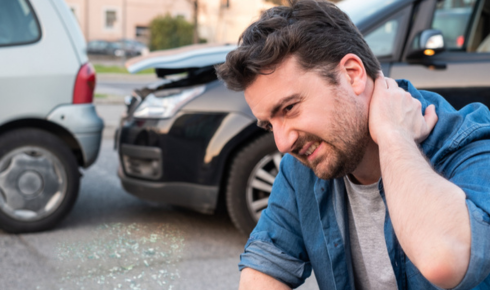Steps to Take After a Car Accident Injury

After a car accident injury, your priority should be safety and medical care. Call 911, report the accident, and ensure everyone receives proper treatment. Even minor injuries should be checked immediately, as some conditions don’t appear right away. Quick medical attention also creates documentation that strengthens future claims.
Working with a Phoenix car accident attorney helps you handle the legal and insurance challenges that follow. Attorneys guide you through collecting evidence, dealing with insurers, and filing claims on time. Their support ensures your rights are protected and increases your chances of securing fair compensation for medical bills, lost income, and other damages.
What Are the First Steps to Take After a Car Accident Injury?
To protect your health, safety, and legal rights after a car accident injury, you should begin by getting medical care and documenting what happened. From reporting the accident to keeping detailed records, each step matters, especially in cases involving distracted driving. Here’s a detailed breakdown of the steps you should take:
1. Make sure you are safe
Check yourself and others for injuries. Move to a safe location, if possible, and call 911 immediately. An official report of the accident in the form of a police report is important in terms of qualifying as an insurance claim or a lawsuit.
2. Seek Prompt Medical Attention
Although your injuries may not look severe, visit a doctor as soon as possible. Specific injuries such as whiplash, internal bleeding, or concussions can not be immediately symptomatic. Medical records are crucial evidence in demonstrating the severity and significance of your injuries.
3. Gather Evidence at the Scene
Take pictures of the cars, the damage to the property, the state of the roads, and your injuries. Obtain each participant’s name, contact information, and insurance details. Also, obtain the contact information of any witnesses. Their statements might corroborate your version of events. Their statements may support your version of events.
4. Maintain Thorough Documentation
Keep a record of every expense related to the accident. This includes medical bills, prescriptions, rehabilitation costs, car repairs, and even missed wages. These documents establish the financial impact of your injury and help maximise your claim.
5. Inform Your Insurance Provider
Notify your insurance company of the accident as soon as you can. Give truthful information, but refrain from saying anything that can be used to reduce your pay. Be cautious, as insurance companies often seek ways to reduce payouts.
6. Understand Liability and Insurance Coverage
Compensation often depends on who is at fault and the extent of available insurance coverage. Some states follow no-fault insurance rules, while others require the at-fault driver’s insurance to cover damages. Understanding these rules helps you determine which benefits you are eligible to claim.
7. Consult With a Personal Injury Attorney
If your injuries are severe or if an insurer denies your claim, legal guidance may be necessary. To get just compensation for your losses and injuries, a skilled personal injury lawyer can gather proof, bargain with insurance companies, and, if necessary, bring legal action.
8. Be Aware of Deadlines
Every state has a statute of limitations, which is a strict deadline for filing personal injury claims. Missing this deadline could mean losing your right to compensation entirely. Acting quickly protects your ability to recover damages.
What Evidence Strengthens a Car Accident Injury Claim?
To build a strong case, gather evidence such as police reports, medical records, photos of injuries, witness statements, and repair bills. These details prove liability, document financial losses, and strengthen your car accident injury claim for fair compensation.
- Police Report: An official record of the accident.
- Medical Records: Proof of injury severity and treatment.
- Witness Statements: Independent accounts that support your story.
- Photos & Videos: Visual proof of damage, injuries, and the accident scene.
- Expense Records: Bills, repair invoices, and lost wage documentation.
This evidence clearly establishes fault and demonstrates the full extent of your damages. By presenting police reports, medical records, expenses, and witness statements, you significantly improve your chances of securing fair compensation after a car accident injury claim.
What Factors Determine Compensation After a Car Accident Injury?
Your potential compensation after a car accident injury depends on several key factors, including the severity of your injuries, required medical treatment, lost income, pain and suffering, and insurance coverage limits. Each element directly influences the value of your claim.
- Severity of your injuries
- Medical expenses and rehabilitation needs
- Lost income and reduced earning capacity
- Pain, suffering, and emotional distress
- Insurance policy limits
The more serious and long-lasting your injuries are, the greater your potential compensation. Severe injuries often lead to higher medical costs, extended recovery, and increased claims for pain and suffering.
FAQs
Should I call the police after a car accident injury?
Yes. Always call the police after a car accident injury. Their official report documents the details, provides strong evidence for insurance claims, and can be critical in legal proceedings if disputes about fault or liability arise.
What if I don’t feel hurt right after the accident?
You should still see a doctor immediately. Many injuries, such as whiplash, concussions, or internal bleeding, don’t show symptoms right away. Medical evaluation protects your health and creates records that support future insurance or legal claims for compensation.
Can I recover lost wages after a car accident injury?
Yes. If your injuries prevent you from working, you may claim compensation for lost income. This includes past wages, reduced future earning capacity, and other financial losses directly caused by the accident-related injuries.
How long do I have to file a car accident injury claim?
Filing deadlines depend on your state’s statute of limitations, which typically ranges from one to three years. Missing the deadline means losing the right to compensation, so it’s crucial to act quickly after an accident.
Do I need a lawyer for a minor accident injury?
Not always. Minor cases may be handled directly through insurance coverage. However, if your claim is denied, undervalued, or involves serious injuries, consulting an experienced car accident lawyer can protect your rights and maximise compensation.
Don’t Face the Aftermath Alone
A car accident injury can leave you struggling with medical bills, lost income, and constant uncertainty about the future. Whether it’s a serious collision or a rear-end car crash, insurance companies often complicate matters by offering settlements that don’t reflect the true extent of your damages.
The solution is to seek legal guidance from an experienced personal injury attorney. With the proper support, you can protect your rights, gather strong evidence, and pursue maximum compensation for your injuries and losses while focusing on your recovery.

